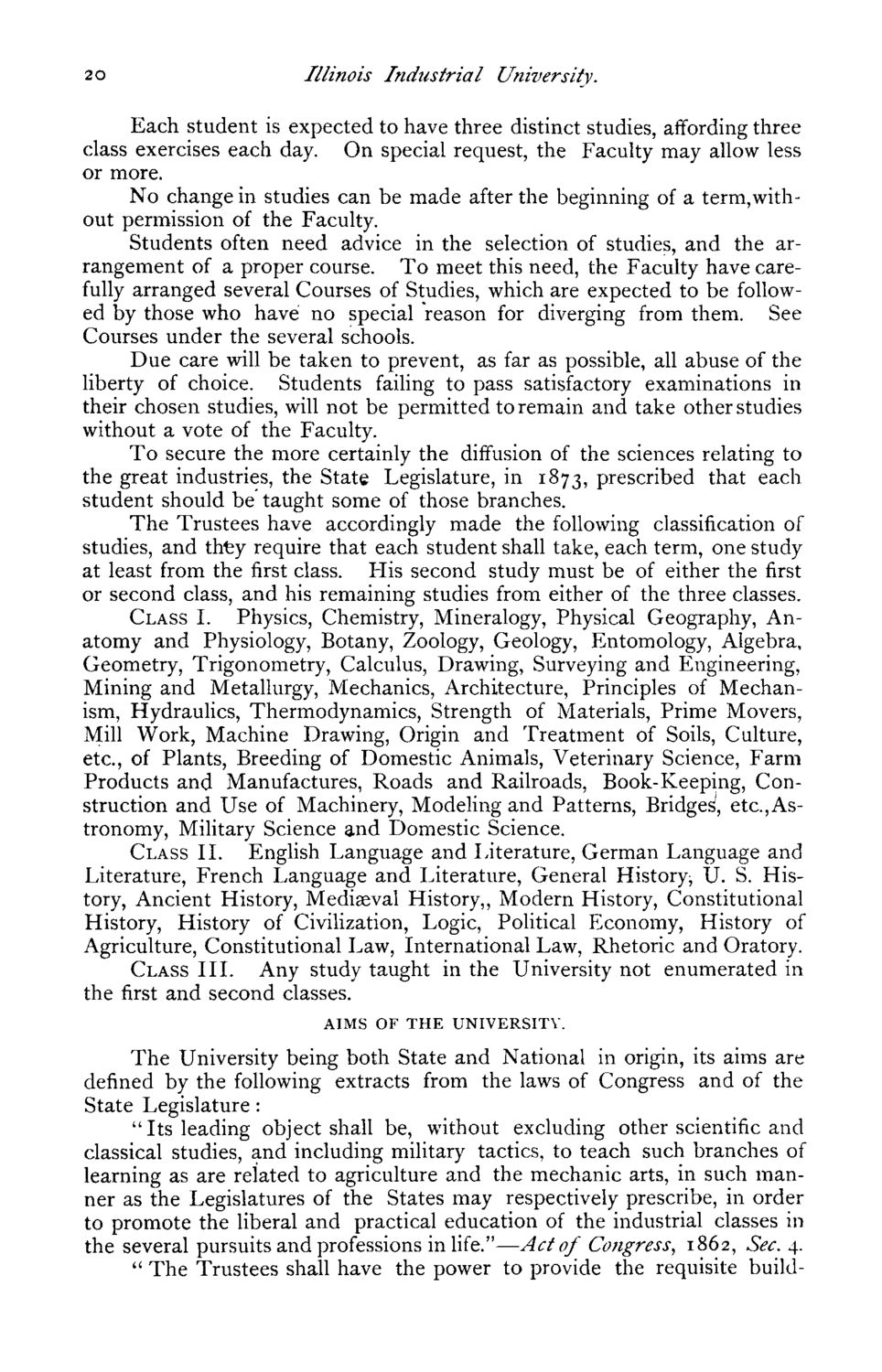| |
| |
Caption: Course Catalog - 1877-1878 Version A
This is a reduced-resolution page image for fast online browsing.

EXTRACTED TEXT FROM PAGE:
20 Illinois Industrial University. Each student is expected to have three distinct studies, affording three class exercises each day. On special request, the Faculty may allow less or more. No change in studies can be made after the beginning of a term,without permission of the Faculty. Students often need advice in the selection of studies, and the arrangement of a proper course. To meet this need, the Faculty have carefully arranged several Courses of Studies, which are expected to be followed by those who have no special reason for diverging from them. See Courses under the several schools. Due care will be taken to prevent, as far as possible, all abuse of the liberty of choice. Students failing to pass satisfactory examinations in their chosen studies, will not be permitted to remain and take other studies without a vote of the Faculty. To secure the more certainly the diffusion of the sciences relating to the great industries, the State Legislature, in 1873, prescribed that each student should be taught some of those branches. The Trustees have accordingly made the following classification of studies, and thfey require that each student shall take, each term, one study at least from the first class. His second study must be of either the first or second class, and his remaining studies from either of the three classes. CLASS I. Physics, Chemistry, Mineralogy, Physical Geography, Anatomy and Physiology, Botany, Zoology, Geology, Entomology, Algebra, Geometry, Trigonometry, Calculus, Drawing, Surveying and Engineering, Mining and Metallurgy, Mechanics, Architecture, Principles of Mechanism, Hydraulics, Thermodynamics, Strength of Materials, Prime Movers, Mill Work, Machine Drawing, Origin and Treatment of Soils, Culture, etc., of Plants, Breeding of Domestic Animals, Veterinary Science, Farm Products and Manufactures, Roads and Railroads, Book-Keeping, Construction and Use of Machinery, Modeling and Patterns, Bridges', etc., Astronomy, Military Science and Domestic Science. CLASS II. English Language and Literature, German Language and Literature, French Language and Literature, General History, U. S. History, Ancient History, Mediaeval History,, Modern History, Constitutional History, History of Civilization, Logic, Political Economy, History of Agriculture, Constitutional Law, International Law, Rhetoric and Oratory. CLASS III. Any study taught in the University not enumerated in the first and second classes. AIMS OF THE UNIVERSITY. The University being both State and National in origin, its aims are defined by the following extracts from the laws of Congress and of the State Legislature : "Its leading object shall be, without excluding other scientific and classical studies, and including military tactics, to teach such branches of learning as are related to agriculture and the mechanic arts, in such manner as the Legislatures of the States may respectively prescribe, in order to promote the liberal and practical education of the industrial classes in the several pursuits and professions in life."—Act of Congress, 1862, Sec. 4. " The Trustees shall have the power to provide the requisite build-
| |